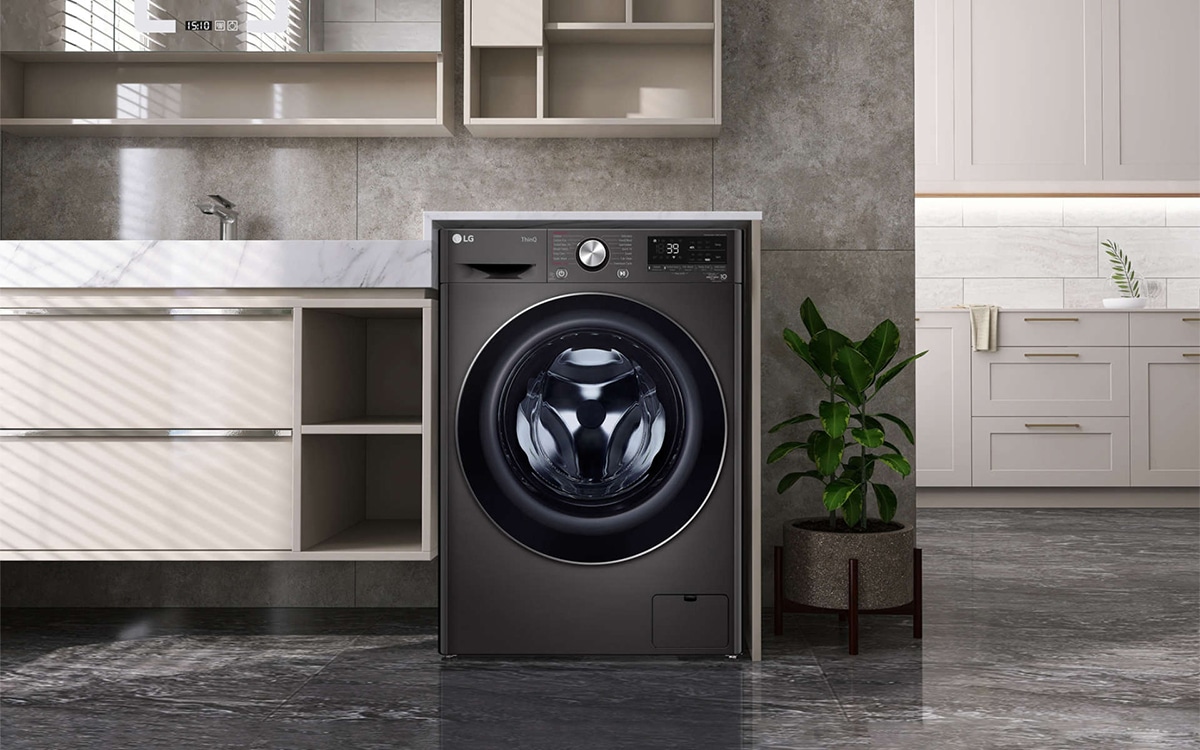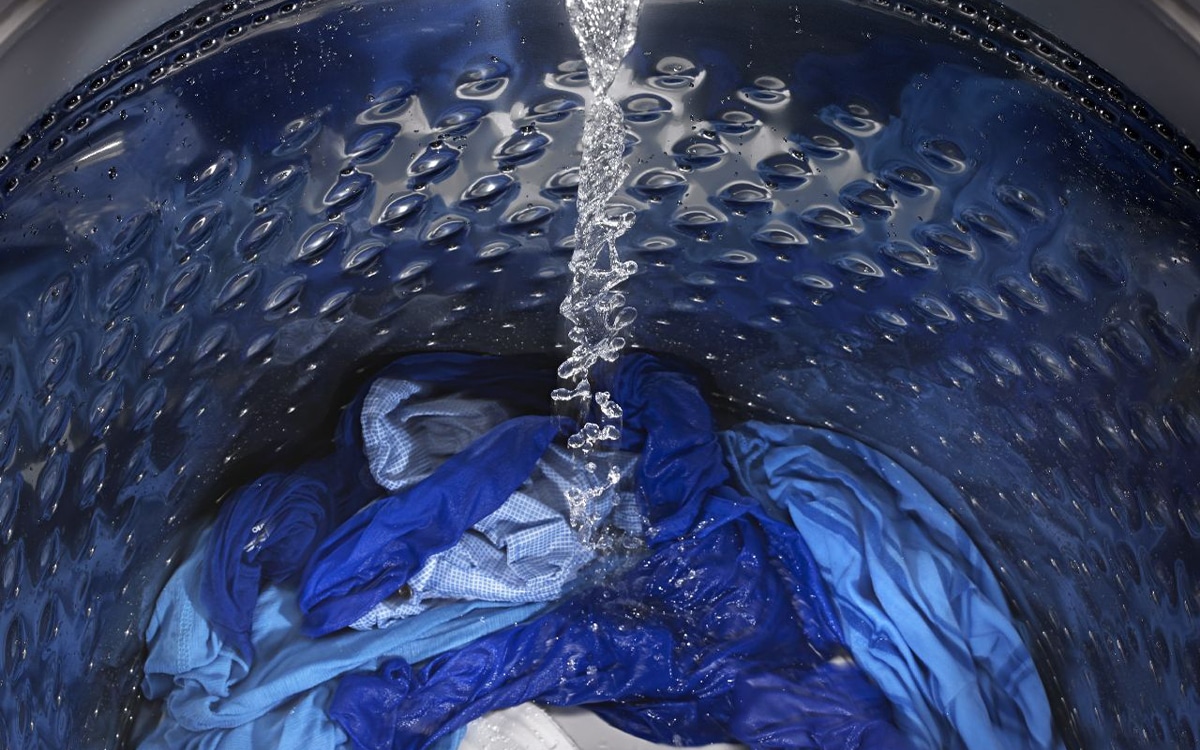We count on our washing machines to be by our side day in and day out. They’re vital for keeping our clothes clean, and for keeping our favourite outfits looking brand new. But much like any home appliance, washing machines are still susceptible to common faults and issues.
There’s perhaps nothing a washing machine owner dreads more than pulling their clothes out of the drum at the end of a cycle, only to find that they’re still dirty and odorous! It can be both concerning and frustrating.
If you’ve ever encountered this situation yourself, you’ve probably found yourself cursing the laundry gods, and wondering why the appliance isn’t cleaning your clothes. Maybe you’re in that situation right now! Either way, this is the guide for you.
Using the decades of knowledge from our Reliant tech experts, we’re going to find out why your washing machine might not be working at its best, and even how you can improve its performance exponentially!
Why Isn’t My Washing Machine Cleaning Properly?
There are a few potential causes that may be behind your laundry woes. To find out the root cause, we recommend checking for some of these common issues.
The Washing Machine Is Overfilled
It really cannot be understated just how important motion is in an efficient washing cycle. It’s not just the water and detergent that help to clean your clothes, but also the motion of the drum. When your clothes spin around in the drum, they naturally tumble around. This motion allows dirt to be softly beaten out of your clothes. It also makes it easier for the water and the detergents to work their magic. If your clothes can’t move around efficiently, it’s much harder for them to be cleaned.
A common cause for inefficient washing machine performance is an overfilled drum. When the drum is overfilled, the detergents cannot work as effectively, as the clothes cannot move around during the cycle.
Make sure to check that you aren’t overfilling the drum every time you run a cycle. When you overfill the drum, it’s much harder for the clothes to move around. In turn, this makes it difficult for dirt to be beaten out, and for the water and detergent to reach every inch of fabric.
To ensure you don’t overfill your washing machine, just make sure to remember the “Two-thirds” rule. You should try to fill up the drum to around two-thirds full. You’ll know you’ve done this if you can still fit your hand fully into the drum once you’ve finished loading it. Filling to around two-thirds is beneficial in a number of ways. For one, it ensures there’s room for the clothes, water, and detergents to move. Second, it’s also filled up just enough to not put any water or electricity to waste!
The Dispenser Drawer is Faulty
Laundry detergents are essential for washing machine performance. These detergents are placed into the dispenser drawer and are then added to the drum at the correct point in the cycle. The only problem is that many washing machine owners neglect to perform regular maintenance on their own dispenser drawers.
Unfortunately, detergents and washing powders very often leave small amounts of residue in these drawers between every cycle. When these pockets of residue build up, and are left unchecked, they can actually block detergents and washing powders from entering the drum in the first place!
We’d recommend completely removing the dispenser drawer and giving it a quick clean between every use.
If the dispenser drawer is often prone to blocking, then we’d also recommend skipping it completely in some cases. Many washing powders can simply be dropped right into the drum, just on top of the laundry load. Laundry pods are also a great option, because they can be placed into the middle of the laundry, and will release their detergents after a certain amount of time has passed! They’re efficient and simple to use!
Plumbing Issues
It may also be the case that your washing machine has encountered a few plumbing issues. Don’t forget that your washing machine needs to be able to access water and drain it multiple times in every cycle. If your plumbing system is in any way hampered, it can have a direct impact on the appliance’s performance.
Blockages can make it difficult for water to enter the drum. This means that there’s less water being used than the washing machine thinks there is. Less water leads to inefficient performance from your laundry detergents!
If your washing machine has any noticeable plumbing problems, make sure to get them checked out by a qualified plumber. Inefficient water usage can not only damage your clothes but also your washing machine!
If your clothes often come out of the drum still feeling damp and soggy, then it may mean that there’s a blockage in the drain pipes. Soggy laundry is far more likely to develop mould and bacteria, rendering it dirty! And when used water is left to pool in your washing machine’s drum, it’s also put at risk of mould and bacteria.
You’re Using The Wrong Cycle
Most washing machine owners have that “Perfect” cycle setting that they choose for every single wash. While this certainly makes operating the system a lot easier, it could lead to some clothes being washed better than others.
Certain laundry items require specific conditions for a full clean. For instance, some items may need to be washed at a higher temperature. This is why it’s so important to check the label of every item you place into the washing machine. They include all sorts of information to help ensure you’re washing just right!
The Washing Machine Is Too Old
Have you had your washing machine for more than 10 years? There’s every chance that it might simply be too old. Much like any other appliance, as a washing machine gets older, its various components slowly degrade. This can lead to less effective performance, or, in some cases, outright failure.
As washing machines get older, they’re more prone to error and failure. You may find that it’s not cleaning your clothes simply because it’s past its best! If yours is significantly older, it’s worth upgrading!
It’s worth considering just how long you’ve had your washing machine for. Once it’s past seven years of age, a washing machine is much more likely to develop significant faults or to become broken down. If you’ve already checked for some of the other frequent causes for inefficient performance, then it could be that your washing machine is past its best.
What Should You Do With An Old Washing Machine?
If you find that your washing machine is significantly older and that it might be hampering washing performance, then what are your next options? Generally, there are two things you can do with an older inefficient washing machine: repair it, or replace it.
But deciding which is the correct option is a point of confusion for many. To decide your next step, you’ll want to consider exactly how old the appliance is, and how much a repair job might cost. The cost of a repair service will depend on the extent of the damage, so you’ll need to contact a few experts to determine what’s wrong with the unit. If the repairs are affordable, and your washing machine is younger than the 10-year milestone, then repairs are a great choice.
However, in many cases, it’s actually more cost-effective to treat yourself to a new model. An older washing machine is more prone to error. This means that in nearly no time after first repairing one, a new error might present itself. A newer washing machine might cost more upfront but will save you hundreds over time.
The Washing Machine Is Too Dirty!
It’s really important to keep your washing machine clean. It’s easy to assume that your washing machine can keep itself clean, but this simply isn’t the case. Small pockets of dirt can leave your clothes, and then find themselves sticking to the surface of your washing machine’s drum. When left uncleaned, these pockets of dirt can become incredibly stubborn, and can then make a mess of your clothes.
It’s important to regularly clean your washing machine. Caked-on dirt and grime can quickly grow out of control, and then make your clothes dirty! Left long enough, left-behind dirt can also damage the washing machine itself.
When your washing machine is dirty, it also makes it incredibly difficult for water and detergents to cycle through. As we know, this results in unfinished and unsatisfying cycles and dirty clothes!

What Happens If You Don’t Clean Your Washing Machine?
Dirt develops across your washing machine slowly over time. It comes from dirt that’s been washed off of your clothes, and even the lint from various fabrics. It’s easy to overlook this dirt because it can start off incredibly small and unnoticeable. However, over time, dirt and grime can put the health of the appliance and your clothes at risk.
For one, if dirt is allowed to accumulate in the various pipes that your washing machine uses, it can impact its ability to draw and drain water. This could then develop into permanent damage to the appliance that is very costly to repair and resolve.
Small pockets of dirt and grime also provide the perfect conditions for bacteria and mould to propagate. This is not only bad for your clothes, but also bad for you. Your clothes are likely to come out smelling strange and infested with bacteria and mould. After prolonged exposure to these improperly-washed clothes, you might experience adverse health effects!
Luckily, cleaning a washing machine is incredibly easy. On the most basic level, you can clean your washing machine by using a soapy washrag, and a little bit of elbow grease. This is best done at least once a month to keep the unit free of small pockets of dirt and loose lint! Make sure to also clean in all of the small corners, such as the dispenser drawers, and the door seals.
We also recommend running a hot wash without any clothes in the drum at least once every six months. Set the washing machine to a high temperature, and allow it to run empty for around an hour.
And make sure to also clean the lint filter of your washing machine, to keep your pipes working correctly.
Is Bleach Or Vinegar Better To Clean Washing Machines?
When running an empty cycle on your washing machine, we also recommend adding in something extra to enhance the job. Using either vinegar or bleach are perfectly capable of doing the job. However, we must remind you that you should NEVER, under any circumstances, mix the two together. Mixing the two creates chlorine gas, which is highly lethal.
Using either vinegar or bleach is a great option for cleaning your washing machine. However, they should not be mixed. When mixed together, the two create chlorine gas, which can kill in no time.
We’d recommend cleaning your washing machine with vinegar instead of bleach. This is because it is more environmentally friendly.

Frequently Asked Questions
Why Isn’t My Washing Machine Cleaning My Clothes?
There are a number of things that can impact your washing machine’s ability to clean clothes. Choosing the wrong cycle type, using the wrong detergents, and overfilling the drum can all have a big impact on cleaning efficiency. Make sure your washing machine is also not too old. Past the age of 7, a washing machine can begin encountering issues that affect performance.
What Temperature Kills Bacteria In Washing Machines?
If you’re hoping to sanitise some of your fabrics, you’ll need to wash them at around 60 degrees Celsius. This is the perfect temperature to kill bacteria. It’s also the recommended temperature to use to clean your washing machine. However, not all clothes can handle such a high temperature, so make sure to be careful with what you place into a 60 degree wash!






0 Comments